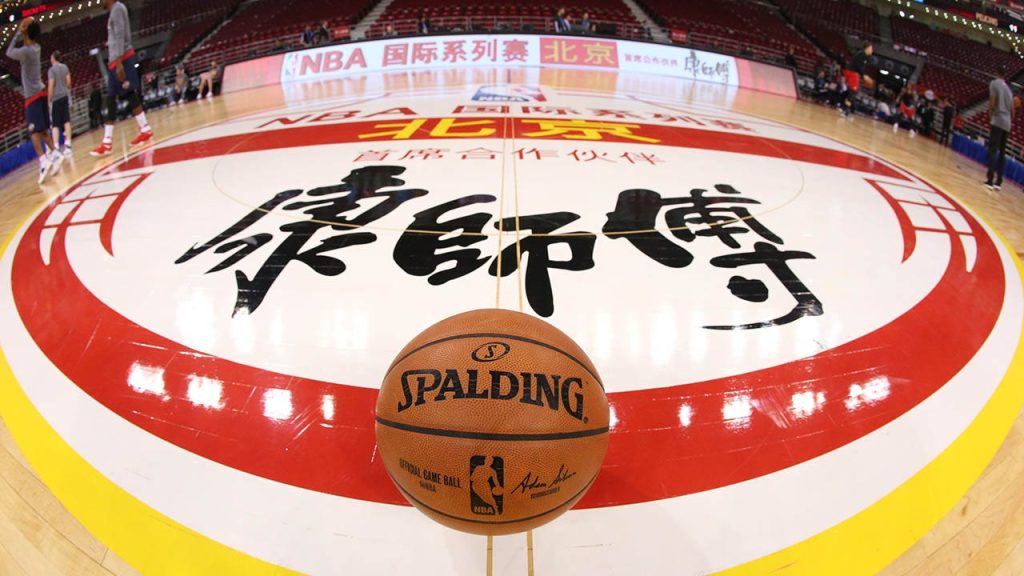The National Basketball Association (NBA) and China appear to be on the mend after a tumultuous period of strained relations, with ESPN reporting the league’s plan to return to China for preseason games in the fall of 2024. This marks a significant step towards normalization following a five-year hiatus triggered by a political controversy involving Houston Rockets General Manager Daryl Morey’s public support for pro-democracy protests in Hong Kong. The Brooklyn Nets and Phoenix Suns are slated to play two exhibition games, signaling a thawing of the icy diplomatic climate that had enveloped the league’s relationship with China. The NBA’s return underscores the enduring allure of the Chinese market, despite persistent concerns surrounding human rights issues and the league’s business practices in the country.
The controversy surrounding Morey’s 2019 tweet expressing solidarity with Hong Kong protesters set off a chain reaction that significantly impacted the NBA’s presence in China. Chinese broadcasters blacked out NBA games, corporate sponsors withdrew their support, and the league incurred substantial financial losses. Chinese officials demanded Morey’s dismissal, exacerbating tensions and leading to a standstill in basketball diplomacy between the two nations. The subsequent cancellation of two preseason games featuring the Los Angeles Lakers and Brooklyn Nets further solidified the rift. While NBA Commissioner Adam Silver acknowledged the “dramatic” financial impact of the strained relationship, he also expressed optimism about a potential reconciliation, a sentiment now seemingly materializing with the planned 2024 preseason games.
The NBA’s return to China highlights the complex interplay of sports, politics, and economics. Despite the fraught political backdrop, the allure of the vast Chinese market, with its immense consumer base and burgeoning basketball fandom, remains a powerful draw for the league. The NBA has long cultivated a presence in China, viewing it as a crucial growth market for the sport. Numerous NBA players have made appearances in China over the years, participating in promotional events and basketball clinics, underscoring the league’s commitment to engaging with Chinese fans. However, this engagement has also drawn criticism, particularly regarding the league’s business relationships and operations within the country.
A significant point of contention centers around the NBA’s involvement in training camps in Xinjiang, a region where the Chinese government has been accused of systematic human rights abuses against the Uyghur Muslim minority population. These accusations, which include mass detention, forced labor, and cultural suppression, have been classified as genocide by the United States government. The NBA’s presence in Xinjiang has thus come under intense scrutiny, with critics arguing that it implicitly condones the Chinese government’s actions. Mark Cuban, the outspoken owner of the Dallas Mavericks, publicly condemned Chinese human rights violations but defended the NBA’s pursuit of business interests in the country, arguing that the league is simply “getting paid for it.” This pragmatic approach, while acknowledging the human rights concerns, highlights the financial incentives driving the NBA’s continued engagement with China.
The case of Enes Kanter Freedom, a former NBA center, further illuminates the delicate balance between athletic careers and political activism. Kanter Freedom, a vocal critic of the Chinese government’s treatment of Uyghurs, testified before Congress in 2023 alleging that his outspoken stance negatively impacted his NBA career. He even went so far as to accuse the NBA of being controlled by the “Chinese dictatorship.” His experience underscores the potential risks athletes face when speaking out against powerful regimes, particularly when those regimes are intertwined with the financial interests of their respective leagues. Kanter Freedom’s situation highlights the difficult choices athletes must make when balancing their careers with their moral and political convictions.
The NBA’s return to China signals a pragmatic, albeit controversial, approach to navigating the complex geopolitical landscape. While the league acknowledges the human rights concerns surrounding its engagement with China, the financial incentives remain a powerful motivating factor. The resumption of preseason games represents a calculated risk, balancing the potential for economic gain against the reputational risks associated with operating in a country with a questionable human rights record. The league’s decision underscores the enduring tension between profit and principle in the world of professional sports, and sets the stage for continued scrutiny as the NBA seeks to rebuild its relationship with China while addressing the ethical dilemmas inherent in its business dealings.

